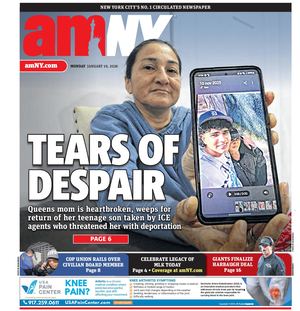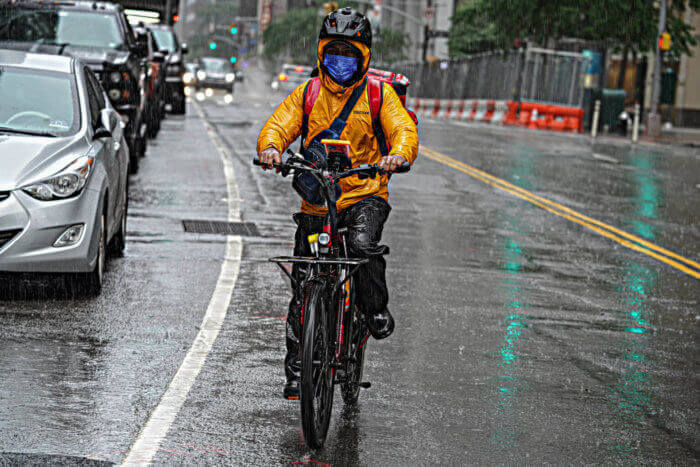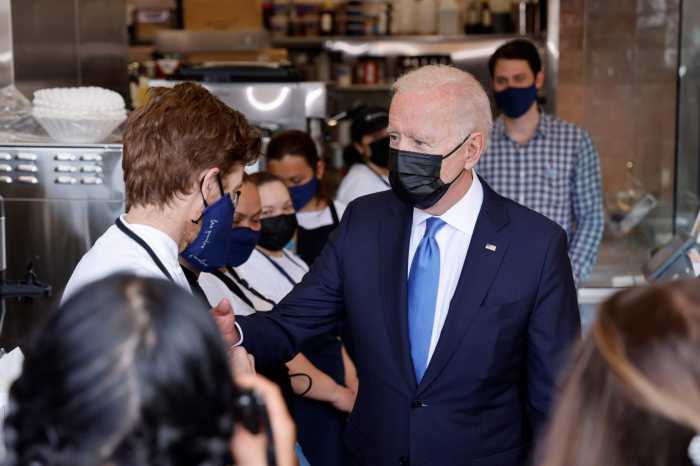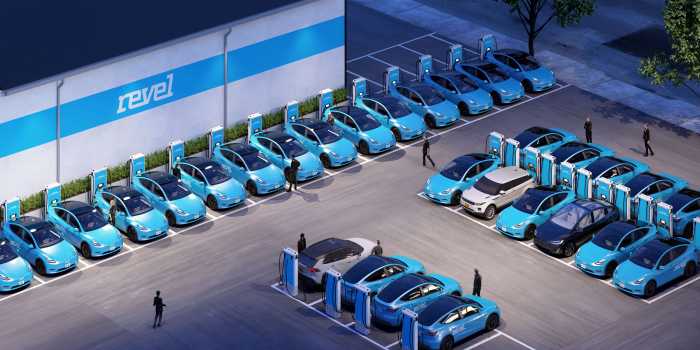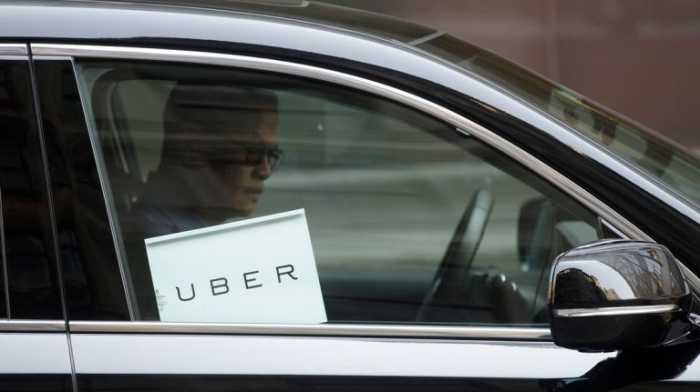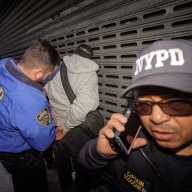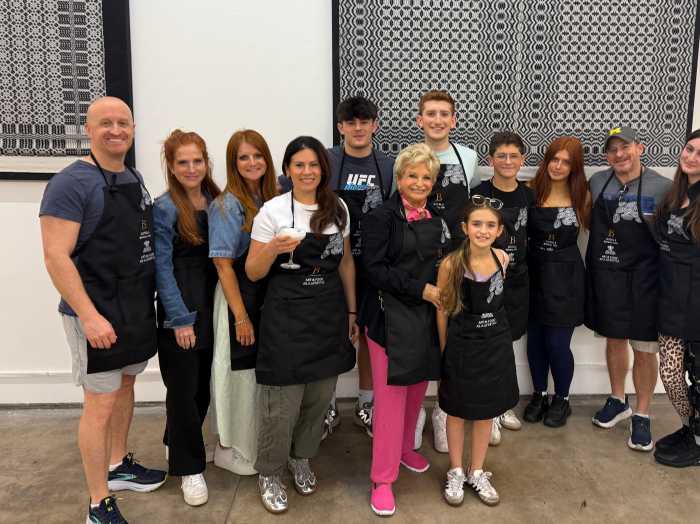As any New Yorker knows, electric micromobility — including e-bikes, e-mopeds, and e-scooters — have become the go-to transportation option for delivery workers.
This is great for delivery workers — enabling them to get around more efficiently and expand their pool of potential customers to boost their earning potential. In fact, a new study commissioned by Uber found that over 65,000 of the city’s estimated 100,000 food delivery workers rely on electric micromobility to do their jobs.
But the rapid rise in micromobility usage has been accompanied by a rise in fires caused largely by unregulated, low-cost lithium-ion batteries. While completely preventable, the same Uber study found that across the five boroughs, over 200 fires in 2022 alone were caused by lithium-ion batteries used to power micromobility devices, largely in low-income neighborhoods of color lacking adequate storage facilities.
So how did we get here? E-bikes, e-mopeds and the like have been on the road for a long time. Despite their prevalence, it wasn’t until November 2020 that the City Council officially legalized e-bikes. This created an underground, unregulated market for micromobility devices, batteries and other accessories that continues to thrive, despite legalization and the availability of top-of-the-line e-bikes that use safer batteries certified by testing agencies such as UL. Many delivery workers still own and use the older e-bike models with fire-prone batteries that they purchased prior to the legalization of e-bikes, and the cheaper price point of these uncertified bikes further encourages their proliferation.
Delivery workers are essential to our city, and we all have a role to play in protecting their safety. That’s why Uber recently announced partnerships with Zoomo and the Equitable Commute Proiect (ECP) to develop and pilot the best approaches for providing safer, discounted e-bike rental and purchase options for New York City delivery workers.
Here’s how it works: Delivery workers will be able to trade in older e-bike models — no questions asked — for cash to put toward a safer, certified e-bike from Zoomo, which are purpose-built for delivery. Zoomo will also offer delivery workers a unique rent-to-own pricing model for its e-bikes, removing a significant financial barrier that has pushed delivery workers to cheaper and dangerous models. Zoomo will also provide discounted safety accessories and provide professional maintenance on the bikes and batteries. Further amplifying these efforts is the Equitable Commute Project, which will pilot a trade-in program that will offer a discounted UL-certified e-bike in exchange for a non-compliant device.
Uber is also working with the FDNY Foundation to launch an education campaign for delivery workers. The campaign will highlight the serious risk associated with current equipment and opportunities — like the Zoomo and Equitable Commute Project partnerships — for helping keep workers and their families safe.
E-bikes are the future of micromobility and are crucial to reducing congestion and meeting the City and State’s climate goals. The mayor’s recent announcement that the city will be piloting e-bike charging and storage locations in Manhattan, Queens and Brooklyn is a promising investment in necessary infrastructure.
Given the breadth of unsafe and illegal e-bikes currently on New York City streets, we know that this problem requires an all-hands-on-deck approach. That’s why findings from our partnerships will be shared with government stakeholders to help guide future approaches with the goal of City- and State-sponsored programs. Further, as an additional measure, Uber supports levying a small fee on all food deliveries, whether from a third party app or direct from a restaurant. While hardly noticeable to the average consumer, the fee could create a sustainable funding source for e-bike infrastructure expansions.
In 2020, New Yorkers relied on delivery workers during our City’s darkest days. We are proud to stand with them now as we work toward a safer, more sustainable future.
